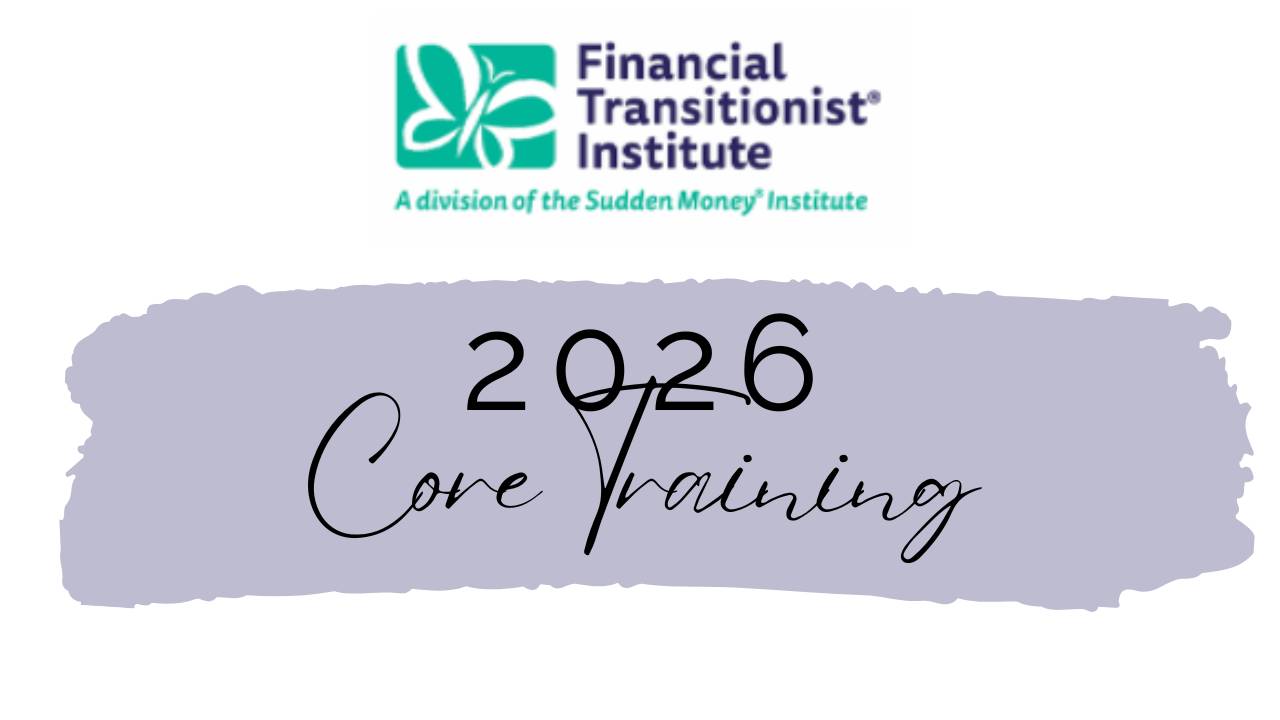On Listening and Respect
Feb 27, 2019
Written by Mary Martin, PhD
If there’s one thing we know here at the Financial Transitionist Institute, it’s that when money changes life changes, and when life changes money changes.®. Life is a series of changes. Some result from personal decisions, while others are thrust upon us. But whatever the specifics, clients facing important financial and life transitions depend upon expert guidance to help them through these changes.
Expert guidance transcends technical knowledge.
While your technical expertise is important to your clients, people in the throes of life transitions need advisors who are also equipped with expertise on the personal side – the human side. Perhaps the most important component of that expertise is listening. Whether your clients are anticipating impending change, working through current change, or still adapting to past change, they crave – and need – a good listener. Whether their life change comes in the form of divorce, retirement, the loss of a spouse, or some other transformative life event, clients in transition need you to be there for them for reasons far beyond the financial realm.
We all want to be heard.
In her 2011 book Culture Savvy: Working and Collaborating across the Globe, ICF-certified global executive coach and training consultant Maureen Bridget Rabotin explores the vital importance of listening. As part of a qualitative survey, Rabotin asked this question of approximately 1100 colleagues and friends reflecting diverse educational, business, and social and cultural backgrounds: What does someone in your culture do that makes you feel respected? Rabotin reports that a particular answer quickly and repeatedly poured in from Japan, the United Kingdom, France and Canada – as well as the United States: “I feel respected when someone listens to me.” That answer was echoed by respondents of Natixis’ 2017 Survey of U.S. Individual Investors, which found that what clients want most from their financial advisors is simply to be listened to.
But not all financial advisors know how to listen.
Stories (like the one in this U.S. News and World Report article) about people who leave their financial advisors for not listening to them and for treating them “like a pile of assets” are far too common. Some advisors mean well and understand what it means to listen, but they get caught up in the role of “fix-it expert,” leading them to talk far more than they listen. Others think they are great listeners already until the day they are surprised to hear that they aren’t.
Being a good listener means…
At the Financial Transitionist Institute, we acknowledge that there is no one-type-fits-all-situations when it comes to listening. Most financial advisors have been trained and coached in active listening. They might not practice active listening the way they should, but they understand that they need to, for instance, ask open-ended questions, paraphrase for clarity, not interrupt, and demonstrate empathy. Active listening is a wonderful tool for collecting information of all kinds: financial, personal, and even emotional. But we talk about listening as being akin to gears, and sometimes there’s a palpable need to shift gears – to downshift to neutral. A good listener knows that when an intensity of thought or emotion arises in the client, active listening might not be skillful. It might hasten the client to finish what they’re saying or take them in a direction they wouldn’t have gone had they been given the space to discover what they’re genuinely thinking and feeling. Giving someone space to figure out what they mean rather than filling space with prompts and even paraphrasing is awkward at first, but ultimately it’s more productive – and more important to the other person – than asking even the most insightful question. Good listeners understand that and practice it. They know that, like any other skill, improvement comes only through practice. If you want to distinguish yourself and experience a different kind of training in listening and relating with your clients, join us.
To find out more about Financial Transitions Planning, click here.
Core Training for the reminder of 2019 begins in June, September, and November.
If you want to hear what practitioners talk about the impact of their
Financial Transitions Planning on their business and their relationships, check out Convos with Advisors.
Stay connected with news and updates!
Join our mailing list to receive the latest news and updates from our team.
Don't worry, your information will not be shared.
We hate SPAM. We will never sell your information, for any reason.

